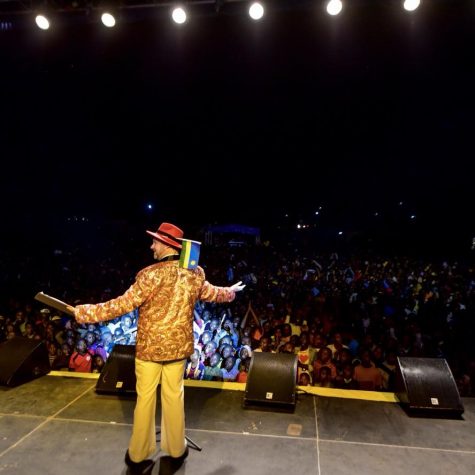Tulane professor Andrew Ward discusses New Orleans tourism industry
October 14, 2020

Prior to COVID-19, 80,000 to 100,000 jobs in New Orleans were in tourism, a $9 billion industry annually for the city. COVID-19 has decimated this industry in New Orleans by 90%, leaving many living on the brink of or in total poverty. Andrew Ward, an adjunct professor in the Tulane Department of Political Science, is teaching a class titled Sustainable Tourism on these and other issues facing the tourism industry worldwide.
Ward’s experience in the tourism industry began as he was working towards writing his dissertation for a PhD in International Development from Tulane. Instead of traveling to a developing country and conducting his research there, Ward decided to center his work in New Orleans and the tourism industry here.
“I got to see the seedy underbelly of the city,” Ward said. “The reality was contradicting the lip service being paid by the cultural mavens and by the elected and appointed officials, namely that this [tourism] was an economic engine that was going to enrich everyone.”
During his eight years as a tour guide in New Orleans, primarily in the French Quarter, Ward saw tourism making the individuals involved poorer as time went on.
“The cost of living was going up but the wages were remaining stagnant,” Ward said. “The wage burden was being passed onto tourists because company owners weren’t paying a livable wage to their servers, their bartenders, barbacks, performers and so on.”
He wrote his dissertation on these features of poverty in the tourism industry that he observed during his work as a tour guide. These “dimensions of poverty” that Ward investigated in his dissertation are all the more relevant today with the collapse of the tourism industry. Visitors are drawn to New Orleans “for the partying atmosphere, for the music, for the delicious food, for the communal nature of our city, of our great city and because of the situation all of that came to a screeching halt,” Ward said.
Ward encourages people who love New Orleans to seek out the best ways to help local New Orleans artists, musicians and various other performers during this tough time. These channels of support vary significantly by artist but may include attending virtual shows of your favorite performers or seeing them perform live from a social distance in Jefferson Parish as COVID-19 restrictions have begun to ease there. Additionally, artists are selling their art through their Instagram pages and websites. Others are relying on support from GoFundMe pages and Patreons.
“Seek them out, because right now they are so frantic,” Ward said. “Some of them are wearing tin foil hats and hiding under the bed right now just waiting for 2020 to be over.”
As for the future of tourism, there is considerable debate amongst members of the industry as to what will arise post-pandemic. The debate is centered around the question of what will people feel comfortable doing once a vaccine is available and if we are able to gather in groups larger than 15.
“Is it going to be a radical reaction and people are going to be coming back and licking each others’ armpits as soon as they possibly can or are people going to maintain a level of distance for some time?” Ward said.
Ward believes that we will see people on both sides of this coin. He also predicts that we will see people coming to New Orleans for features that may not have originally seemed the most touristy.
“Rather than spending all of their time on six blocks of Bourbon Street, hopefully people will start coming to New Orleans for some of its rare natural beauty,” Ward said. “Whether it’s City Park, Audubon Park or across the line in Lafreniere, people are going to come to enjoy a lot of the things that we locals have been enjoying over the last several months that tourists never see.” Ward believes that these new tourist sites can open the door for a whole new tourism market.
Despite these uncertainties, Ward emphasizes New Orleans’ ability to bounce back from any obstacle.
“It’s going to be different, but if there’s one thing I can tell you it’s that after 302 years of New Orleans history, the French Quarter burnt down twice in 6 years, we’ve had 20+ yellow fever epidemics, we’ve had floods, fires, storms, hurricanes, we’ve had potholes that could swallow your car and violent crime but we always bounce back somehow,” Ward said.
Ward is teaching a class about the rise of Christian nationalism and its influence on American politics next semester and encourages any students interested to register for the class.
-Update 10/15/20: The original version of the his article incorrectly stated that Professor Ward was working on his M.S. dissertation when he was actually working on his PhD dissertation. The article has been updated with the correct information.






















Matthew DeGier • Oct 28, 2020 at 10:24 am
Well written article on exciting academic and civic opportunities brought to Tulane by Professor Ward. I look forward to meeting him.
Thank you for making me aware for Professor Ward and his work in the city and his teaching at Tulane.
-Rev. Matt DeGier
Chi Alpha Christian Fellowship
MICHAELYN BROUSSARD • Oct 15, 2020 at 5:06 pm
Extremely interesting class for the Spring. My Mom would love to take that – virtually.